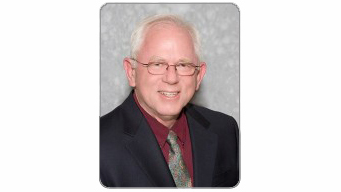As if getting audited wasn’t bad enough, now the IRS has added a new twist: the short timeframe audit. With these types of audits, it is possible that an audit case could be closed by the IRS before your client has a chance to show you the letter. This article provides guidance on what IRS letters to look out for and what to do if your client receives one.
What Is It?
In recent months the IRS has been sending out a series of examination letters that limits the amount of time a taxpayer is given to make contact and provide documents. In some cases, only 15 days are provided for a response before the audits are closed and sent to the Notice of Deficiency (NOD) unit.
What to Look Out For
The short timeframe audit usually begins with IRS Letter 3572, which is a request for an appointment. If there is no contact within the initial 10 days, a second letter (IRS Letter 5262) goes out with an examination report, and the taxpayer is given a fifteen-day time limit to respond. Oftentimes, additional tax years are opened for audit at this time. If there is no contact during this 15-day period, the option for local appeals is lost and the case is closed and sent to the NOD unit.
In some instances Letter 5262 is sent out on the same date as the first letter, which gives your client a total of only 15 days to respond. If your client has moved since filing their tax return, it is extremely unlikely that the letter will be received in time to respond. The same may be true if your client is on vacation, on a business trip, or in the hospital, when the letter arrives.
What to Do
Before you contact the IRS, review the IRS letter with your client and find out if they have the documents to support the items under examination. Assuming you worked on the tax return under audit, this should be a conversation you had at the time you prepared their tax return. Next, determine how quickly they can gather and deliver them to you. Having this information will make it easier to convince an examiner to work with you if they had the inclination to close your case.
If the Due Date Has Not Yet Passed
Call the examiner right away and ask for an extension. If you do not yet have your client’s Power of Attorney (IRS Form 2848), make the call anyway. If the examiner refuses to speak with you, get the signed Power of Attorney as fast as you can from your client and call back and make the appointment. Making the appointment will ensure that the case is not closed before that date. If you are able to make the appointment, it’s very important that you do not cancel it, as cancelling the appointment will cause the case to be closed and/or other years opened for audit. If you cannot be ready for the appointment, reschedule it rather than cancelling it.
Meanwhile, get your client started immediately on gathering the documents requested in the letter. During that initial conversation, explain how the Power of Attorney works and provide instructions on how to complete it. It’s important that they return the signed document to you immediately. Having the Power of Attorney will make it possible for you to obtain the information you and your client need, including whether or not the IRS has already sent your client’s case to the NOD unit.
If the Due Date Has Passed
Call and inquire as to whether or not the examiner still has the case on his or her desk. If the answer is yes, request that you be able to work the case. Chances are, if you can get the Power of Attorney and documents in quickly, the examiner will be willing to work with you if the case hasn’t been closed.
If the case has already been closed and sent on to the NOD unit, you will have to wait for the next notice, which could take several months to arrive. In this situation, your client has only two choices: (1) pay the amount due or (2) file a petition with the United States Tax Court, which provides the opportunity to appeal the decision already made and eventually settle the case through the Tax Court. Once a case has been sent to the NOD unit, it can take 12 to 24 months of additional time to close the exam.
If you are not an attorney or a United States Tax Court Practitioner (USTCP), you are not allowed, according to the rules of the United States Tax Court, to assist your client with the Tax Court Petition. Hopefully, you have a colleague who is an attorney or United States Tax Court Practitioner (USTCP) who can assist in this area. If not, consider finding one in your area to team up with on these types of cases. Once the petition has been filed, generally, you will be able to work with the pretrial appeals staff at the NOD unit to resolve the case just as you would in a normal examination, if you are a CPA or Enrolled Agent. If no documents were ever submitted to the exam unit, the case will most likely be sent back to the original examiner from appeals to work the case.
If the case does go to NOD, explain to your client that you may face some difficult hurdles in trying to resolve their case. Set the expectations up front, while making it clear that you will do everything possible to resolve their audit with the most favorable outcome and within the shortest timeframe possible.
Thanks for reading CPA Practice Advisor!
Subscribe Already registered? Log In
Need more information? Read the FAQs
Tags: Auditing, Income Taxes, IRS




